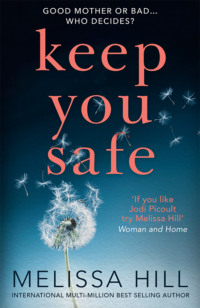Keep You Safe: A tear-jerking and compelling story that will make you think from the international multi-million bestselling author

Добавить В библиотекуАвторизуйтесь, чтобы добавить
Добавить отзывДобавить цитату
Keep You Safe: A tear-jerking and compelling story that will make you think from the international multi-million bestselling author
Вы ознакомились с фрагментом книги.
Для бесплатного чтения открыта только часть текста.
Приобретайте полный текст книги у нашего партнера:
Всего 10 форматов
Авторизация